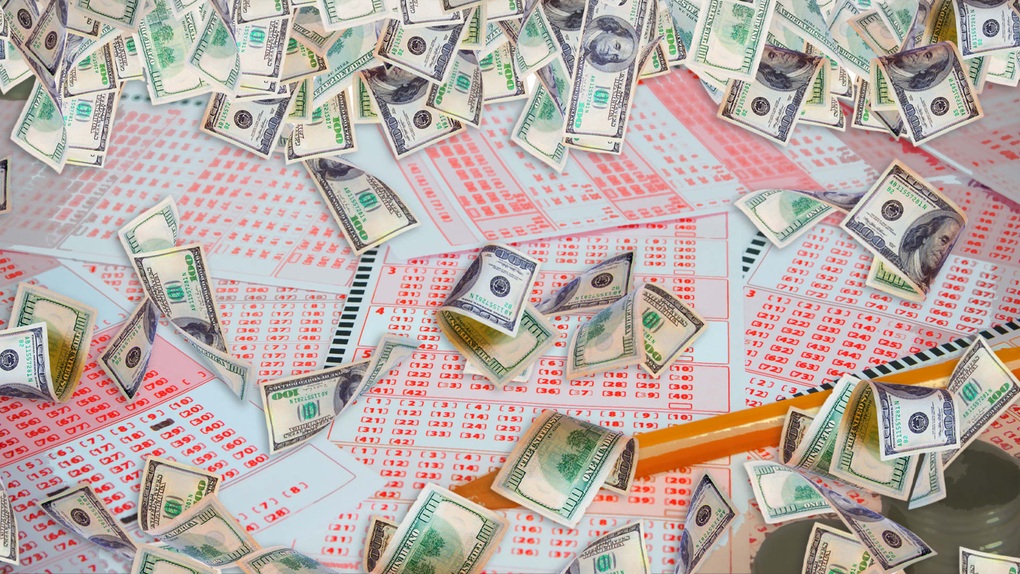In 1999, Tim Schultz was a student in debt and working at a gas station in Iowa, USA, for minimum wage. One day, his life took an unexpected turn: a Powerball ticket worth a few dollars won him $28 million. At the age of 21, Schultz became a millionaire overnight.
Unlike many other “lottery billionaires,” Schultz did not spend lavishly. He hired a financial advisor, paid off all his debts, invested most of his winnings, and chose to live a private life. After more than 25 years, he has remained wealthy – a rarity, considering that 70% of lottery winners in the US go bankrupt within a few years.
Today, Schultz lives off investment profits and runs the popular podcast Lottery, Dreams and Fortune, where he shares little-known behind-the-scenes stories about the lives of lottery winners.

Most of us have dreamed of winning the multi-million dollar Powerball jackpot one day, but getting the money is hard, keeping it is even harder (Photo: Adobe Stock).
Here are six secrets that helped him maintain his wealth and that anyone can learn from.
Keep your lottery ticket safe and keep your mouth shut - survival before receiving the money
It sounds simple, but the winning ticket is the most important thing. “Put it in a safe, fireproof, waterproof, somewhere safe. No one can confirm you won without the original ticket,” Schultz said.
Even if you haven’t filed for the prize, sharing the good news too early can lead to unintended consequences, from strangers asking for money to legal trouble. Schultz recommends telling only your lawyer, financial advisor, and a few trusted family members.
If you buy tickets in a group, make a written agreement with the owners before claiming the prize to avoid disputes.
Had to set up a "financial relief team" before receiving the money
Many lottery winners are shocked to discover that receiving their money is not as quick as they thought. “You have up to a year to claim your prize, so don’t rush it,” Schultz said.
First, hire a reputable financial advisor who can help you invest safely, plan your spending, handle taxes and donations. Equally important is hiring an attorney who specializes in wills and estates.
“A lawyer can help with paperwork, taxes, insurance, and strategies for maintaining anonymity, especially if you want to live comfortably after becoming a millionaire,” Schultz shares.
“The more you don’t know, the more you should ask, even if it seems silly.” Winning the lottery doesn’t mean you understand everything about finance. Start with the basics and always seek help from a professional.
If you want to keep millions of dollars, you must know how to receive money properly.
When claiming your prize, you will have to choose between a lump sum or an annuity. The lump sum is usually only about 50-60% of the total declared value, the rest is taxed.
For example, if you win $100 million, you might only take home about $60 million before taxes. After that, the US government will withhold 24% in federal taxes, not including state taxes (except for the eight states that don't tax lottery winnings, like California or Washington).
Plus, the money won’t be in your hands right away. It typically takes 6–8 weeks to process, and even longer if you owe money to the government. One person had their claim delayed because he owed $20 in car registration fees.
Winning the lottery is not showbiz, silence is golden
Once you reveal your identity (mandatory in many states), you’ll quickly become prime prey for the media and scammers. Do as millionaire Edwin Castro did—the record-breaking $2.04 billion winner in 2023—by keeping quiet, staying out of the public eye, and hiring a digital cleanup company.
Schultz advises: “The more private you are, the safer you are. Avoid showing off on social media or spending too much money on shopping.”
You should even change your phone number, move, hire security guards and set up security measures for yourself and your family. “With big money comes big risks. Protecting your safety is just as important as making a profitable investment,” Schultz emphasized.
Too much money can easily offend people, learn to refuse even relatives
Once people know you've won the lottery, your mailbox and phone will be flooded with requests for money. But the most dangerous beggars are people you know.
“Friends, relatives, even ex-lovers called me asking for financial support. Some were angry when I refused. I lost many relationships because of money,” Schultz said.
To cope, he uses the “third-party” tactic: “I often say, ‘I need to ask a financial advisor,’ and I mean it. I always have clear rules about lending or financing.”
Most importantly, understand that no one has the responsibility to “save the world ” just because they won the lottery. Setting limits is completely normal and necessary.
Don't chase money, let money serve your dreams
Schultz did not buy a supercar or go on a luxury vacation after receiving his award. His first purchase was a video game console, followed by a small house and a relatively modest car.
What he wanted most was to go back to school, study journalism and pursue his passion for storytelling. That's how the Lottery, Dreams and Fortune podcast was born - where he chats with other lottery winners and shares his valuable experiences with the community.
“Money is a tool. It doesn’t solve all your problems, but it can open doors for you to live your dreams,” he said. “I’m lucky, but success doesn’t come from money. It comes from how you live and use your opportunities.”
Not everyone wins the lottery. But anyone can learn how to manage their finances like someone who has won millions. These 6 lessons from Tim Schultz are not just for lottery winners, but for anyone who wants to prepare for big changes in their life.
Source: https://dantri.com.vn/kinh-doanh/bi-quyet-cua-mot-nguoi-khong-pha-san-sau-khi-trung-xo-so-tai-my-20250620204909810.htm











































































































Comment (0)